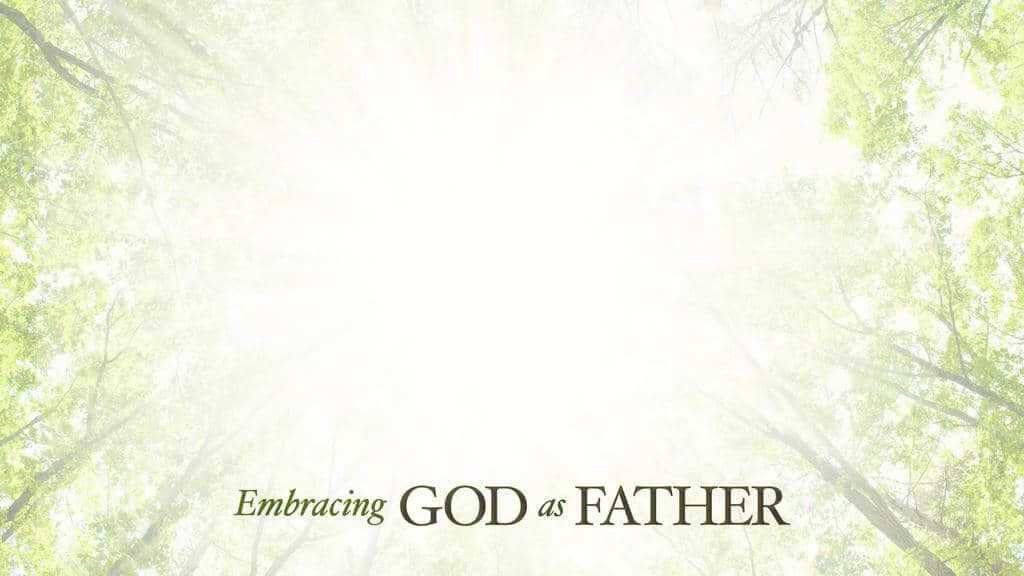This is a guest post by Dr. Daniel Bush. Daniel is the author of Live in Liberty: The Spiritual Message of Galatians, May’s Free Book of the Month.
Seven years ago, my world fell apart.
At the time I was living in Scotland and, for deeply personal reasons, had to leave on the heels of my residency. I’d spent weeks packing all of my household goods and books. I sold my car. The movers finally came and took my boxes.
As I hurried through final preparations so I could turn my keys over to the landlord, my daughter frolicked with friends in the back garden. She seemed oblivious to my stress—or that in less than two hours, we would make our final departure from our home of two years. Out of the corner of my eye, I caught a glimpse of her running across the lawn and laughing, and lingered to watch her from the window.
The profound freedom manifested in her play was founded on trust. She trusted that her daddy had everything under control.
Even in that difficult moment, God the Father was inviting me to trust him in the same way. My introspection pushed me into repentance: “Father, forgive my doubt and distrust; let me be just like that with you right now.”
Fatherhood and fear
“In Roman society, the father of the family not only managed his own children, but also ruled over the entire estate, which often included servants, slaves, and those seeking refuge and shelter. Hence the Roman father serves as a powerful image of the way in which God the Father takes responsibility over his household, how he manages and protects it for the fulfillment of his plan and purpose” (Embracing God as Father, 115–16). If that’s true—and it is!—then why do we fret and fear?
We can take for ourselves the Father’s words to Jeremiah: “For I know the plans that I am planning concerning you … plans for prosperity and not to harm, to give to you a future and a hope” (Jer 29:11 LEB). Neither the emperor, our employer, the elders of our church, nor even our adequate or inadequate parents hold eminence over the fatherhood of God. His fatherhood is marked by covenant-keeping loving-faithfulness (hesed) full of mercy and grace.
He nurtures, directs, protects, and provides for us—even when it feels like he’s taken a vacation and we’re surrounded by difficulties.
Learning to trust, one experience at a time
I recently left my 7-month-old puppy with a friend while I was traveling. My dog had met him before and was excited to see him, yet when I left, she whimpered and barked. Over the next day and a half my friend took good care of her. He and his wife took her for long walks. They even put her on a long, staked lead in the yard, where she was fascinated by deer and bunnies frolicking in the forest around his home.
In the end, she enjoyed herself and still was excited to see me when I returned. Although she was perplexed when I first left her, she learned that I’m faithful, that I hadn’t abandoned her, that I had something good in store for her.
Like my puppy, we learn to trust in the Father one experience at a time. The valleys we traverse aren’t always scenic or short—sometimes they are downright scary, shocking, and even scandalous—but he ensures that the trail will eventually emerge from the shadows into a clearing. In that field our hearts reflexively give humble praise to him.
He will not waste a moment of our obedience or distress. He has made us prosper, reminding us along the way that we need him, honoring our longing for his presence, teaching us that his grace is sufficient, that his character matches his word, teaching us to live by trusting faith.
Wanting God on our own terms
There is, of course, a potential problem with staring at our experiences—namely, that we begin to long for them and live by them instead of by faith. We want to see clearly and up close. We don’t want to live in the land of promise, but to live out the blessing itself. We want logical arguments for God and experiences of God; we want God on our own terms.
In short, we refuse to take God on his terms, which so often leaves us fragile with nothing more to hold onto than vulnerable faith. But such faith is exactly what the Father would have us hold to above all else.
Faith is neither abandoning ourselves to nothing, nor is it sheer blindness. As John Webster has written in Confronted by Grace, it is “that kind of seeing which corresponds to the way in which God is visible; it’s that kind of knowing which corresponds to the way in which God gives himself to be known. Faith is the way in which we meet and respond to the God who sets himself before us, to be known and seen as who he truly is” (162). Our Father, with his generous and overflowing heart, refuses to withhold anything from us that will help us know him better.
***





